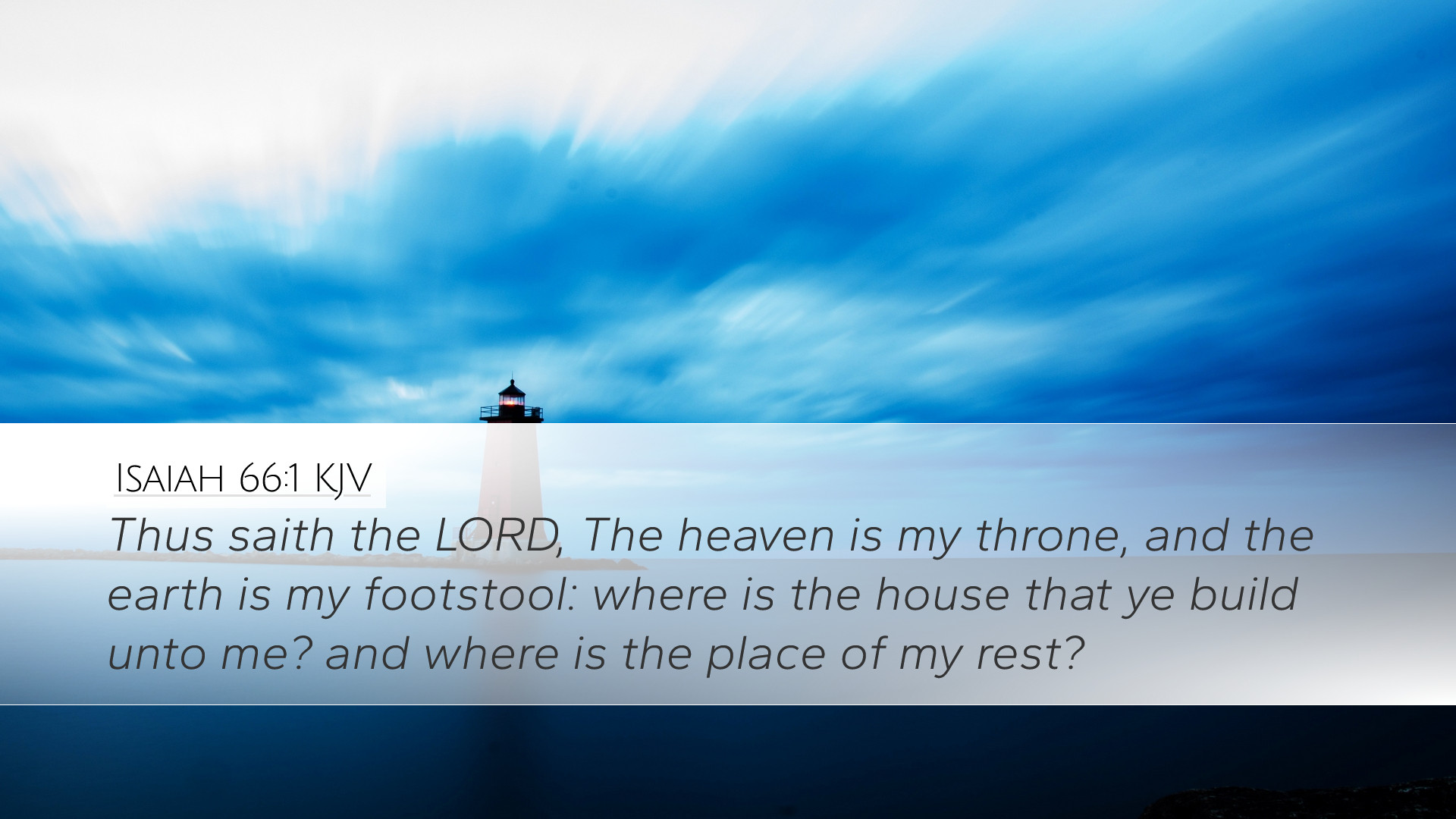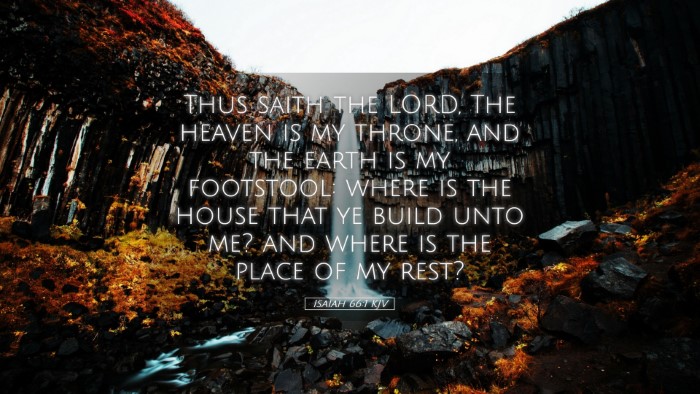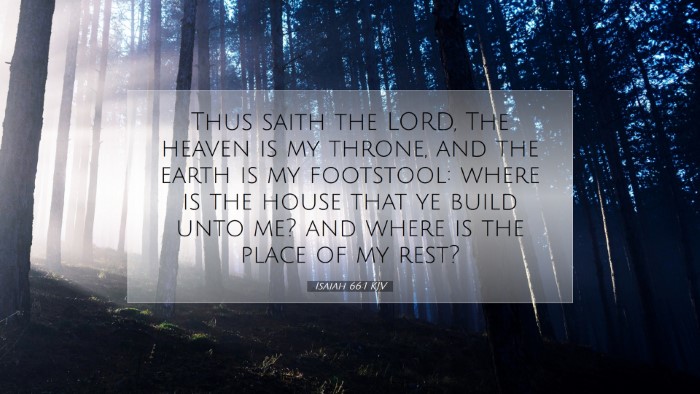Commentary on Isaiah 66:1
Verse: "Thus saith the LORD, The heaven is my throne, and the earth is my footstool: where is the house that ye build unto me? and where is the place of my rest?"
Introduction
Isaiah 66:1 presents a profound statement that encapsulates not only the grandeur of God but also speaks to the futility of human efforts to contain or encapsulate the divine. In this verse, God reveals His sovereign authority and the limitations of human constructions in relation to Him. This commentary synthesizes insights from notable public domain sources, providing a rich theological perspective suitable for scholars, pastors, and students of the Bible.
The Majesty of God
Matthew Henry emphasizes the majesty of God in His assertion that "the heaven is my throne." This metaphor illustrates God's sovereign rule over all creation. The imagery of heaven as a throne signifies His ultimate power and dominion, which is unchallengeable and everlasting. The emphasis on God sitting enthroned suggests stability, authority, and governance over the universe.
Albert Barnes adds that this declaration illustrates not only God’s omnipotence but also His transcendence — He exists beyond and above the material realm. The vastness of heaven manifests the greatness of the Creator, highlighting that all created things, including kings and rulers, are subject to His authority.
The Earth as His Footstool
The phrase "the earth is my footstool" serves as a stark reminder of the insignificance of earthly structures in comparison to God's glory. Adam Clarke states that a footstool represents a place of subjugation. In this context, it implies that the earth is not only under God's sovereignty but also serves as a reminder of human limitations and the vanity of attempting to contain God within physical spaces.
The imagery conveys that no human temple or edifice can truly encapsulate the divine presence. This understanding is crucial for theologians, as it refines the view of worship spaces that are often imbued with sanctity. Places of worship are important, yet this verse calls to recognize that God cannot be confined to buildings.
Questioning Human Endeavors
The rhetorical questions posed in the latter part of the verse — "where is the house that ye build unto me? and where is the place of my rest?" — serve as a divine challenge to the Israelites. Henry elucidates that it calls into question the efficacy of their religious practices when separated from genuine devotion and obedience.
Barnes notes that God is not disrespecting the temple's significance but is rather highlighting the inadequacy of man-made structures to contain His majesty and presence. This is a crucial point for church leaders and congregations to understand; building elaborate structures pales in comparison to the need for a humble heart and true worship.
Theological Implications
At the core of Isaiah 66:1 lies a theological assertion about God’s omnipresence. Clarke explains that God’s presence is not confined to sacred sites; rather, it permeates all creation. This concept has profound implications for understanding worship — true worship can occur anywhere since God is everywhere.
The verse also conveys a sense of accountability. If God is not confined to man's creations, then humanity must approach Him with reverence and humility, recognizing their own limitations. As scholars reflect on this passage, it serves as an invitation to challenge the status quo of worship practices.
Application for Life and Ministry
Pastors and leaders can draw valuable lessons from this verse. It serves as a reminder to focus on the substance of faith rather than mere forms and traditions. The emphasis should be on relational worship rather than on building impressive structures or rituals that seek to impress God.
- Re-evaluating Worship: Assess whether worship practices accurately reflect an understanding of God's nature as depicted in Isaiah 66:1.
- Encouraging Authenticity: Foster environments where congregation members can encounter God authentically, outside of traditional constraints.
- Emphasizing God's Sovereignty: Teach about God's sovereignty to instill reverence and awe within the community.
Conclusion
Isaiah 66:1 invites believers to reflect deeply on the nature of God and their approach to worship. The insights derived from public domain commentaries enrich our understanding, calling us to reject superficiality in faith. As we seek to build our spiritual lives and communities, let us anchor ourselves in the truth that God is transcendent, and our worship must stem from a place of humility and genuine reverence for His majesty.


